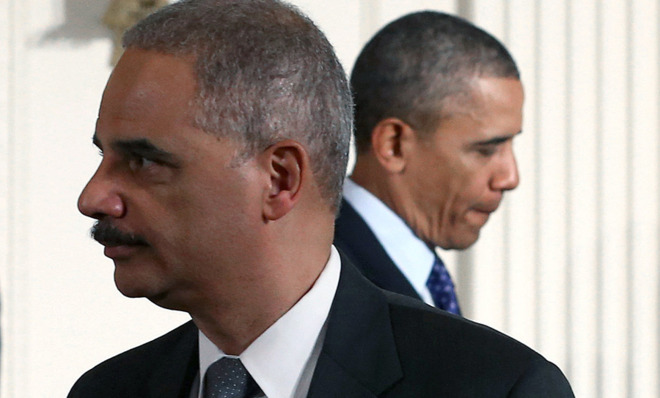Be afraid of watch lists
A real threat to civil liberties


A free daily email with the biggest news stories of the day – and the best features from TheWeek.com
You are now subscribed
Your newsletter sign-up was successful
One reason I worry less about the National Security Agency's surveillance practices is because, on the scale of actual harm, they weigh quite low compared to the routine harms and violations committed almost willfully by other U.S. government agencies.
In January of 2005, Rahinah Ibrahim, a Malaysian-born Stanford graduate student in architecture, checked in at the United Airlines ticket counter at San Francisco International Airport for a five-hour flight from San Francisco to Hawaii. Ibrahim was still recuperating from surgery, so she asked for wheelchair assistance to her gate. With her was her daughter, an American citizen. Instead of help, Ibrahim was detained by the Transportation Security Administration, questioned about her religious ties and affiliations, and told by a supervisor that her name registered on a federal no-fly list. After two hours, the supervisor said that her inclusion on the list was a mistake, and he allowed her to fly that day.
Two months later, her student visa was revoked because, it seems, the government considered her a terrorist. Nine years of litigation ensued, and last week, federal judge William Alsup upbraided the government for the monumental series of mistakes and judgment errors that led to her detention, confinement, and subsequent banishment from the United States. He explained that her name had been entered erroneously into a database by an FBI agent who had checked the wrong box on a visa security evaluation form, a mistake the government compounded when consular officers refused to (or could not) scrub her name from the interconnected, but not interoperable, web of government watch lists. He chastised the government for insisting on secrecy, and made fun of its contention that revealing to Ibrahim (even today) whether her name was ever on a watch list would be tantamount to a grievous lesion against the counter-terrorism brain trust at the FBI and Department of Homeland Security.
The Week
Escape your echo chamber. Get the facts behind the news, plus analysis from multiple perspectives.

Sign up for The Week's Free Newsletters
From our morning news briefing to a weekly Good News Newsletter, get the best of The Week delivered directly to your inbox.
From our morning news briefing to a weekly Good News Newsletter, get the best of The Week delivered directly to your inbox.
The Obama administration felt compelled to continue to fight against disclosure and redress on the grounds that it, as bad as the U.S. might feel about how it treated Dr. Ibrahim, could not set a precedent whereby non-citizens would be allowed to question the U.S. State Department about their watch-list status and entitled to receive an accurate answer. For some reason, instead of attempting to segregate this common sense law enforcement principle, it argued that details about the watch lists shouldn't be made public because merely doing so would harm national security, and that it could not make an exception for cases where admittedly innocent people were unfairly added to lists.
Attorney General Eric Holder signed his name to an assertion that the state secrets doctrine was properly asserted by the government because the plaintiff's attorneys had asked for specific information about intelligence collection techniques and analytical judgment metrics in order to figure out the threshold required to add a name to a database, the levels of review the additions are subject to, and the types of intelligence that are processed during grievance reviews. He insisted that the privilege was not asserted to cover up a mistake — even though, of course, the government admitted in open court that the reason why Ibrahim's name was initially flagged for review was because an FBI agent made a mistake.
In Alsup's opinion, the government's redactions reveal its reasons for acting so stubbornly. Alsup ordered the government to tell Ibrahim that her name was erroneously added to the watch lists and was not currently (or presently) on any watch list. But the Justice Department redacts every reference Alsup makes to this instruction. Why? Because the government wants to deny the force of Alsup's opinion. Plain and simple. If that sentence were released, the government apparently fears that just about anyone could have standing to sue in U.S. court to determine whether their names were still on a watch list, citing Ibrahim's case as an example of how the government has the capacity to mitigate, redress, and address its errors and that it accepted the federal judge's authority to order it to disclose to someone that their name made it onto a list. Once again, control of national security information in the future is the issue here. Justice for Ibrahim therefore remains incomplete.
The government has reason to fear averse publicity, at least. The databases checked by the TSA are not very hygienic. Laura Poitras, the co-discoverer of Edward Snowden's NSA cache, was once suspected by the military of providing aide and comfort to the enemy. The charge was a fabrication. A lie. Until that was sorted out, Poitras's name was added to a watch list of some sort. But when it was sorted out — and Poitras proved to be completely innocent — no one went back and scrubbed the system, either because no one is in charge of dynamically updating such matters or because the Department of Homeland Security maliciously wants to harass Poitras whenever she attempts to fly in and around the United States. Pretty much anyone associated with Wikileaks has had the same problem. These detentions are, at best, violations of the dignity of innocent people, and, at worst, evidence of a hyperactive and mean-spirited counter-terrorism bureaucracy. I suspect the answer is in the middle: In Poitras's case, for example, if no one in the government was deliberately assigned to constantly review her case, no one would be assigned to change her status once the libelous charges against her were proved to be false.
A free daily email with the biggest news stories of the day – and the best features from TheWeek.com
This is a big problem. The technology exists to add people rapidly to lists, but it is harder to take people off. Adding people is automatic; subtracting people requires human beings who are otherwise occupied. This is a real consequence of an information-hungry, terrorist-fearing surveillance state. If innocents fall into the gap, so be it: There's a better chance that bad guys won't get in. (There is a TSA redress process for American citizens but — again — agencies maintain different databases for different reasons (and properly so). After 9/11, the watch list infrastructure was built up quickly and continues to grow. Since we are now, thankfully, in a period of rebalancing, the government ought to seriously consider the civil liberties implications of the continued presence of even a handful of innocent people on the list. Its clunky procedural defense in Ibrahim's case did itself no favors.
Marc Ambinder is TheWeek.com's editor-at-large. He is the author, with D.B. Grady, of The Command and Deep State: Inside the Government Secrecy Industry. Marc is also a contributing editor for The Atlantic and GQ. Formerly, he served as White House correspondent for National Journal, chief political consultant for CBS News, and politics editor at The Atlantic. Marc is a 2001 graduate of Harvard. He is married to Michael Park, a corporate strategy consultant, and lives in Los Angeles.
-
 Hotel Sacher Wien: Vienna’s grandest hotel is fit for royalty
Hotel Sacher Wien: Vienna’s grandest hotel is fit for royaltyThe Week Recommends The five-star birthplace of the famous Sachertorte chocolate cake is celebrating its 150th anniversary
-
 Where to begin with Portuguese wines
Where to begin with Portuguese winesThe Week Recommends Indulge in some delicious blends to celebrate the end of Dry January
-
 Climate change has reduced US salaries
Climate change has reduced US salariesUnder the radar Elevated temperatures are capable of affecting the entire economy
-
 Why Puerto Rico is starving
Why Puerto Rico is starvingThe Explainer Thanks to poor policy design, congressional dithering, and a hostile White House, hundreds of thousands of the most vulnerable Puerto Ricans are about to go hungry
-
 Why on Earth does the Olympics still refer to hundreds of athletes as 'ladies'?
Why on Earth does the Olympics still refer to hundreds of athletes as 'ladies'?The Explainer Stop it. Just stop.
-
 How to ride out the apocalypse in a big city
How to ride out the apocalypse in a big cityThe Explainer So you live in a city and don't want to die a fiery death ...
-
 Puerto Rico, lost in limbo
Puerto Rico, lost in limboThe Explainer Puerto Ricans are Americans, but have a vague legal status that will impair the island's recovery
-
 American barbarism
American barbarismThe Explainer What the Las Vegas massacre reveals about the veneer of our civilization
-
 Welfare's customer service problem
Welfare's customer service problemThe Explainer Its intentionally mean bureaucracy is crushing poor Americans
-
 Nothing about 'blood and soil' is American
Nothing about 'blood and soil' is AmericanThe Explainer Here's what the vile neo-Nazi slogan really means
-
 Don't let cell phones ruin America's national parks
Don't let cell phones ruin America's national parksThe Explainer As John Muir wrote, "Only by going alone in silence ... can one truly get into the heart of the wilderness"
